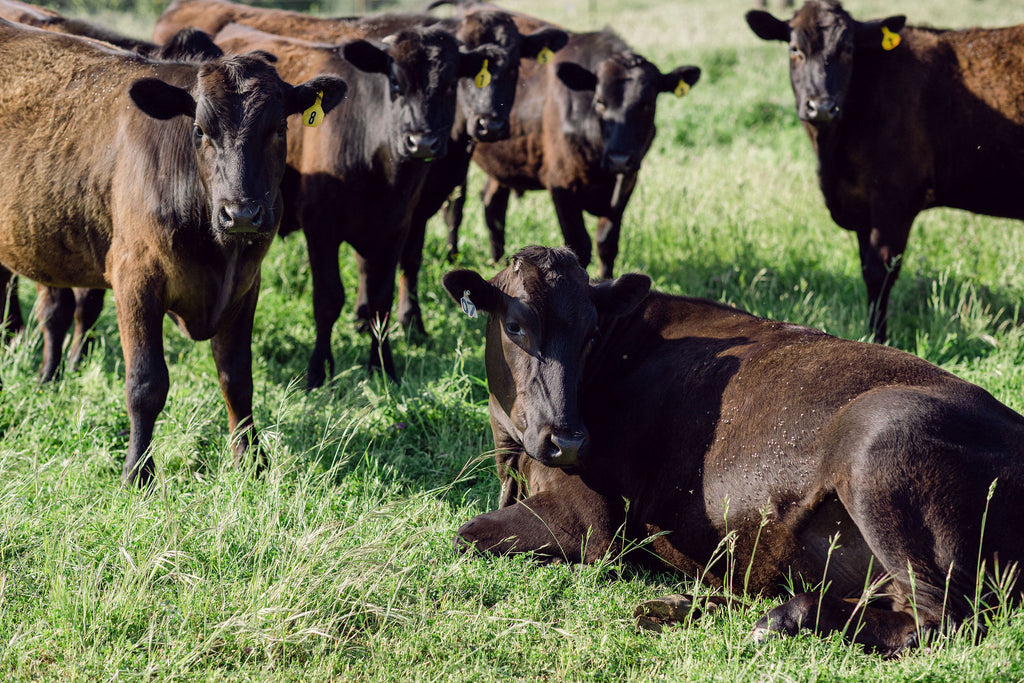Why Regenerative?
 Regenerative farming focuses on soil health. We are mimicking natural grazing patterns to promote plant root growth, which in turn, captures more carbon and nitrogen, all while enhancing the soil’s ability to absorb water. This cycle enriches the soil and promotes growth throughout the biome, attracting earthworms and birds and insects that prey on pests.
Regenerative farming focuses on soil health. We are mimicking natural grazing patterns to promote plant root growth, which in turn, captures more carbon and nitrogen, all while enhancing the soil’s ability to absorb water. This cycle enriches the soil and promotes growth throughout the biome, attracting earthworms and birds and insects that prey on pests.
In practicing regenerative agriculture, we have committed to enriching the land rather than exploiting it. We utilize farming practices that go beyond sustainable and organic, including no-till farming, cover crops, fire mitigation, composting, and rotational grazing to breathe life back into our topsoil and ensure its longevity.
We rotate our pastured livestock daily, ensuring a healthy, nutrient-dense diet and allowing the land much-needed rest. Holistic grazing, imitating the natural movements of wild animals, goes beyond free-range—it restores and supports the symbiosis that allows vitality to flourish within our land and animals. By short grazing periods, allowing our livestock to disturb the grasses, but not overgraze, the plants put down deeper roots and have access to natural fertilizers that improve the mineral content in the soil.
Regenerative agriculture should not stop at rejuvenating our farmland and the animals it nurtures. Its impact echoes outward, nourishing local families with beyond-organic, nutrient-dense food, and a space to come together in community and health. Regenerative farming is a natural choice for us. We believe in offering better, grass-fed and pastured meats and eggs, while improving the environment in which we live.
We practice regenerative agriculture to provide you with the best food nature has to offer. In working in harmony with nature and mimicking nature's process, regenerative agriculture has the power to reverse climate change, build healthy soil, create habitat, and heal our bodies.